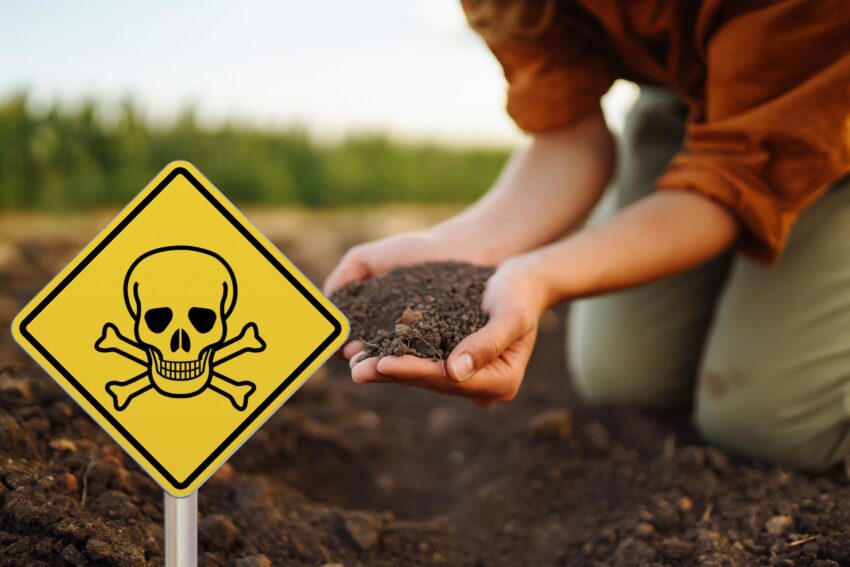For decades, farmers across the United States have been told that they’re doing their part for the environment by using treated sewage sludge as a fertilizer. Marketed as a “green” and sustainable solution, this practice was not only endorsed but actively promoted by the Environmental Protection Agency (EPA). However, recent revelations have thrown this narrative into question, revealing a hidden cost that’s now threatening both the livelihoods of farmers and the health of the general public.
The Promise of Sustainability
The idea of turning waste into a resource is inherently appealing. Sewage sludge, rich in nutrients like nitrogen and phosphorus, was seen as an ecological wonder – a way to reduce landfill burdens while simultaneously enriching soil. The EPA hailed this practice as part of a broader environmental strategy, encouraging its application on millions of acres of farmland. This was supposed to be a win-win: waste management for urban areas and a cost-effective source of nutrients for farmers.
The Unseen Danger: PFAS Contamination
However, beneath this eco-friendly facade lurked a significant danger – per- and polyfluoroalkyl substances (PFAS), known as “forever chemicals” due to their persistence in the environment and human body. These chemicals, found in everyday items from non-stick cookware to waterproof clothing, have been linked to a plethora of health issues including cancer, liver damage, and decreased fertility.
According to a groundbreaking new study, sewage sludge used on American farms is often contaminated with these toxic substances at levels that far exceed safety thresholds. This has led to the contamination of crops and livestock, with PFAS entering the food chain in ways previously underestimated or ignored. Farms are, unfortunately, now at the heart of a burgeoning public health crisis.
The EPA’s Sudden Shift
The EPA, which had long championed the use of sewage sludge, has now issued warnings about the health risks associated with PFAS-laden biosolids. This reversal comes after years of advocacy for sludge application, leaving farmers in a difficult position. Many have been using this “fertilizer” with no prior knowledge of the lurking dangers, trusting in the EPA’s endorsements.
Oddly, even with this new warning, the EPA is still claiming this toxic sewage sludge hasn’t impacted US food safety.
“For the first time, the Environmental Protection Agency has warned that “forever chemicals” present in sewage sludge that is used as fertilizer can pose human… https://t.co/9rDfcdSvTE pic.twitter.com/D6FW9huAb5
— Prodigal (@ProdigalThe3rd) January 14, 2025
This recent advisory from the EPA is not just a policy shift but a glaring admission that the agency may have overlooked or underestimated the risks associated with this practice. The implications are profound, suggesting that the pursuit of sustainability might have inadvertently prioritized environmental optics over real safety and health concerns.
The Impact on Farmers and Public Health
For farmers, the fallout is both economic and existential. Fields that once produced healthy crops are now potentially sources of contamination, leading to significant losses in productivity and market value. The livestock raised on these lands, including dairy cows whose milk was found to contain high levels of PFAS, have had to be culled, further impacting farm incomes. The environmental and agricultural communities are grappling with how to mitigate this damage, with some farms forced to shut down entirely due to contamination levels.
On the consumer side, the health implications are alarming. With PFAS now potentially in our food supply, the public faces the risk of long-term health effects from consuming contaminated produce or meat. The irony is palpable; what was supposed to be a step towards sustainable farming has introduced a form of pollution that could have lasting effects on human health.
Moving Forward: A Call for Accountability and Reform
This situation calls for urgent action from both regulatory bodies and the agricultural sector. Farmers need clear guidelines, support for soil remediation, and alternatives to sewage sludge that don’t compromise health or environmental integrity. There’s also a pressing need for the EPA to reassess its policies, moving from endorsement to stringent regulation when it comes to waste utilization in agriculture.
The narrative around “green” practices must be recalibrated to ensure they do not come at the expense of human health or agricultural viability. Farmers, the backbone of our food system, deserve better than to be caught in the crossfire of seemingly well-intentioned but poorly managed environmental policies.
As we move forward, let this be a lesson in the complexities of sustainability, where the green solution must be genuinely safe, not just superficially so. It’s time to advocate for farming practices that nurture both the land and the people it feeds, without hidden costs to our health or our future.


